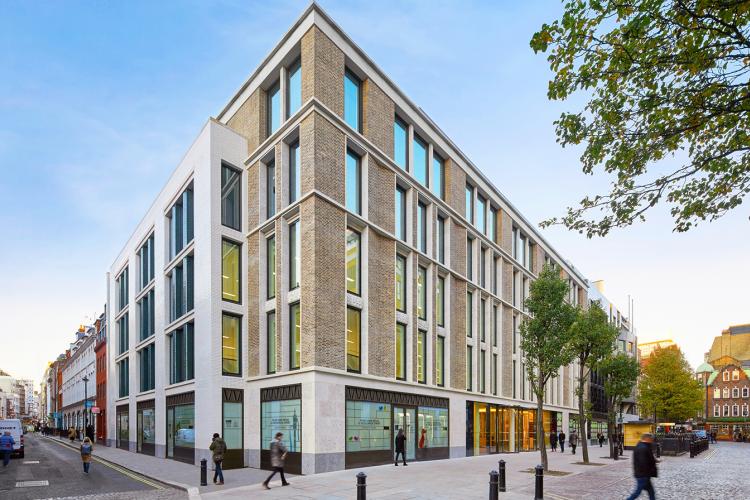Commissioning
Commissioning is a vital part of the fit-out project to ensure that building systems and services operate as designed and are fit for occupation. Commissioning typically takes place towards the end of Construction and prior to final Handover, however, on larger and more complex projects, it may be phased.
A commissioning process will typically involve the testing of key systems, e.g. HVAC, controls, lighting, security, fire and water distribution systems. Successful commissioning ensures that these systems operate in an efficient and integrated way, providing a comfortable, safe and secure indoor environment. This is a particularly important for fit-out projects where there is integration required between systems belonging to the owner and the occupier respectively.
Pressure to complete and handover the project can result in commissioning being rushed. Opportunities can be missed to meaningfully involve operational managers to help support an effective transition and underpin efficient future running of the space. This can lead to sub-optimal operation in the early stages of occupancy.
Part L of the Building Regulations also requires that all controlled services that falling within the scope of the regulations are commissioned. Systems that are not commissioned properly can operate inefficiently, and the desired Occupier Benefits will be at risk. This can have a direct impact on occupant satisfaction and productivity.
1. Establish a Commissioning Plan Early in the Project
It is essential that a clear and robust commissioning plan is set early and is implemented fully. This should include an agreed regime for witnessing, validating and record-keeping. The occupier and contractor should incorporate sufficient time for commissioning, and all parties must identify suitable individuals and sufficient resource. Detailed industry guidance exists to support owners and occupiers in this process.
Industry Guidance & Initiatives
1. CIBSE Commissioning Codes
The Chartered Institute for Building Services Engineers (CIBSE) has developed a suite of Commissioning Codes which provide clear and systematic steps required to commission building services in a robust and timely manner.
As a brief summary, CIBSE Commissioning Code M: Commissioning Management recommends the following key requirements for successfully commissioning building services systems:
- Allow sufficient time for the commissioning process and ensure integration into the overall construction programme.
- Form a commissioning management team; comprised of the Design Team, Contractors, Sub-Contractors and operational staff.
- Maximise the use of off-site pre-commissioning activities.
- Involve manufacturers of equipment in the commissioning process.
- Adopt thorough and pre-agreed commissioning procedures.
- Document and issue evidence that the requirements of the Building Regulations have been met.
- Obtain user feedback to confirm the performance of the system(s) and the attainment of required internal environmental conditions.
2. BSRIA Commissioning Guide Set
The Building Services Research and Information Association (BSRIA) has developed a Commissioning Guide Set or 7 technical guides:
- Commissioning Job Book (BG11/2010) - aimed for all those working in construction, it sets out how commissioning fits into various project activities from the preparation stage, through design and construction to handover and after care.
- Commissioning Air Systems (BG 49/2015) - provides guidance on essential design requirements, installation considerations and commissioning procedures plus information on reporting and documentation.
- Domestic Ventilation Systems (BG46/2015) - complements the Commissioning Air Systems guide by providing additional information for domestic systems.
- Commissioning Water Systems (BG2/2010) - provides guidance on water commissioning for practising engineers, and complements CIBSE's updated Code W.
- Model Commissioning Plan (BG8/2009) - provides guidance to help construction project teams and building control officers understand and record the commissioning activities that need to be carried out.
- Pre-Commission Cleaning of Pipework Systems (BG29/2012) - provides guidance on the the latest thinking and good practice cleaning techniques.
- Seasonal Commissioning (BG44/2013) - sets out the benefits of seasonal commissioning and which tasks and activities fall under its scope.
3. BSRIA Soft Landings
Soft Landings was developed by BSRIA and The Usable Building Trust as a cradle-to-operation project process to help overcome the performance gap between design intentions and operational performance, whilst meeting the needs of occupants.
Soft Landings requires clients and their design teams to make more use of operational performance feedback, from pre- and post-occupancy building evaluations, to better inform client requirements and design briefs.
Involving a process of graduated handover, it incorporates a period of professional aftercare by the project team, planned for and carried out from project inception and lasting for up to three years post-completion.
The framework includes 5 key stages:
- Inception and briefing: Ensuring that the client’s needs and required outcomes are clearly defined.
- Design development and review: Reviewing comparable projects and assessing proposals in relation to facilities management and building users
- Pre-Handover: Ensuring operators properly understand systems before occupation
- Initial Aftercare: Stationing a Soft Landings team on-site to receive feedback, fine tune systems and ensure proper operations.
- Extended Aftercare: Outstanding issues are resolved and post occupancy evaluations are fed-back for future projects.
The Framework is more commonly seen in a new buildings as part of a wider and more comprehensive process that runs from setting the design brief through the extended project lifecycle, however, can be very useful fit-out projects. The framework includes an approach to ensuring successful commissioning, as summarised in below.

